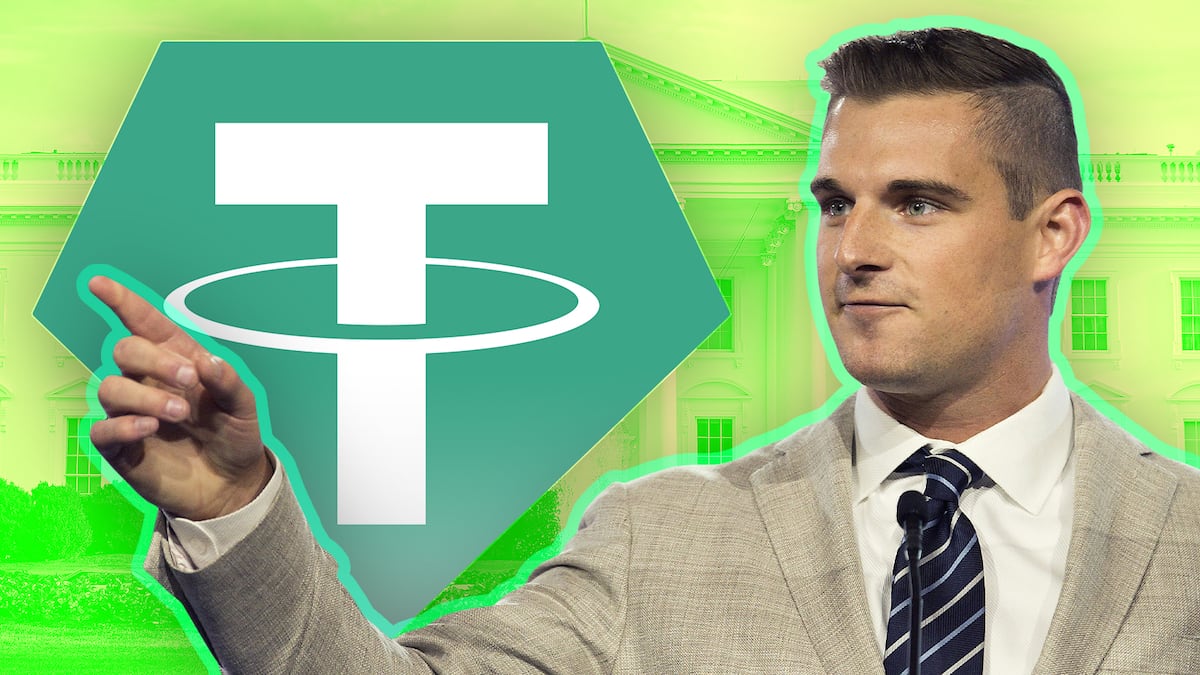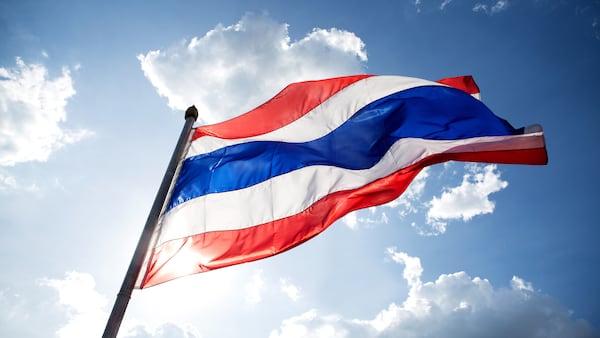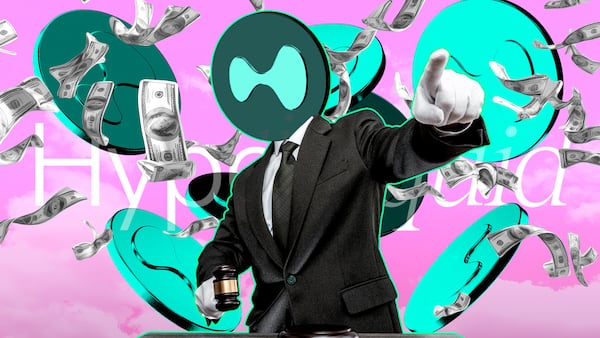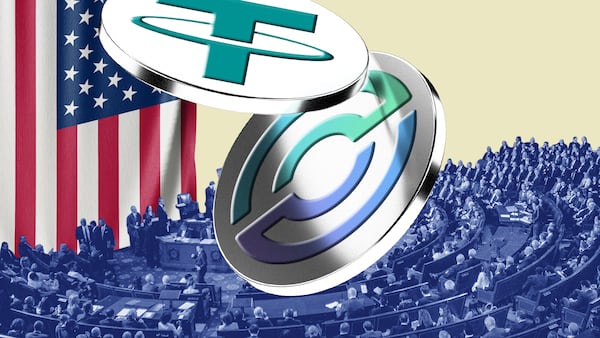- Tether will launch a stablecoin for the US market.
- Former White House official Bo Hines will lead the effort.
Tether, the issuer of the world’s largest stablecoin, will launch a new stablecoin for the US market dubbed USAT by the end of the year, CEO Paolo Ardoino said Friday.
Tether USAT, the Charlotte-based company behind the USAT token, will be led by Bo Hines, who previously led the White House’s crypto council as executive director. He joined Tether in August as the company’s strategic advisor for the US.
“Tether is here to participate in the US economy in a huge way,” Hines said on Friday at an event in New York City attended by several heavy-hitters from the crypto and traditional finance spheres, including venture capitalist Kyle Samani, Chainalysis CEO Jonathan Levin, and ARK Invest founder Cathie Wood.
Crypto bank Anchorage Digital will issue the stablecoin on behalf of Tether USAT, and Cantor Fitzgerald will manage its reserves. Formerly led by US Commerce Secretary Howard Lutnick, the financial giant holds a 5% stake in Tether and manages most of the assets backing its existing USDT stablecoin.
Brandon Lutnick, Howard Lutnick’s son and Cantor Fitzgerald’s chairman, was among those in attendance at Friday’s event.
Anchorage Digital will be a shareholder in Tether USAT, Ardoino told reporters during a press conference after the event. But he declined to say whether Cantor Fitzgerald would also be a shareholder, or which company would be the majority shareholder, citing ongoing discussions.
USDT is the world’s largest stablecoin, with a market capitalisation of $169 billion, according to DefiLlama data. That puts it far ahead of the number two stablecoin, Circle’s USDC, which had a circulating supply of about $72 billion on Friday.
Long locked out of the US, Tether began turning its attention toward the world’s largest economy this year as Congress debated, and ultimately approved, landmark stablecoin legislation called the Genius Act.
In July, Ardoino said the company was looking to launch a new dollar-backed stablecoin that focuses primarily on institutional payments and interbank settlements.
Hines said Friday that Tether was a motivating force behind the passage of the Genius Act, which sets rules and regulations for the issuers of US dollar-backed stablecoins, allowing some of the world’s largest companies to get in the game.
“One name kept coming up, and that was Tether,” Hines said, recalling discussions with US crypto czar David Sacks. “And we said to ourselves, ‘How can we be the crypto capital the planet without having the most impactful company in the space operating here in the United States?’”
Ardoino said on Friday that El Salvador-based Tether would eventually seek US approval of USDT through the Genius Act’s reciprocity provision, which allows for the licensing of stablecoins originating from countries that have a similar regulatory regime. Nevertheless, the CEO insisted USDT would not compete with USAT in the US.
“USDT will be the distribution channel for USAT abroad,” he said.
“The biggest country for remittances … is the United States. So we see this in a symbiotic way, where USAT is the product that is purchased domestically, and then if there is the need to spread it abroad, emerging markets will use the pipes of USDT.”
As to why Americans would use USAT over its larger sibling, Hines cited accessibility.
“It’s having access to using these products in a way that’s seamless and interoperable,” he said.
Tether is enormously profitable: Despite having fewer than 300 employees, the company made more than $13 billion in 2024 and is on track to match that in 2025, Ardoino said. That’s because USDT is largely backed by revenue-generating US Treasurys.
Recently-launched stablecoins pass some of that revenue onto holders. But USAT is unlikely to join them, according to Ardoino.
“I’m not a huge fan of that part of the stablecoin business, because I think it will make stablecoins less sustainable,” he said.
Tether has shunned playing ball with officialdom. It elected to stay out of the European Union after it ushered in the Markets in Cryptoassets Regulation, or MiCA, in 2023.
Moreover, the company has long struggled to find an auditor for its books. At the moment, Tether relies on “attestations” to disclose its reserves, which don’t have the credibility of regulated audits conducted for public companies.
Ardoino told DL News last year he was keen on signing up one of the Big Four accounting firms, which had previously balked out of fear having Tether as a client would damage their reputations.
Hines said Tether’s US expansion over the next two years will be “exorbitant.”
“I’m not shy in saying this, we want to dominate,” Hines said. “But we want to dominate for the US.”
Aleks Gilbert is DL News’ New York-based DeFi correspondent. Got a tip? Email ataleks@dlnews.com.









